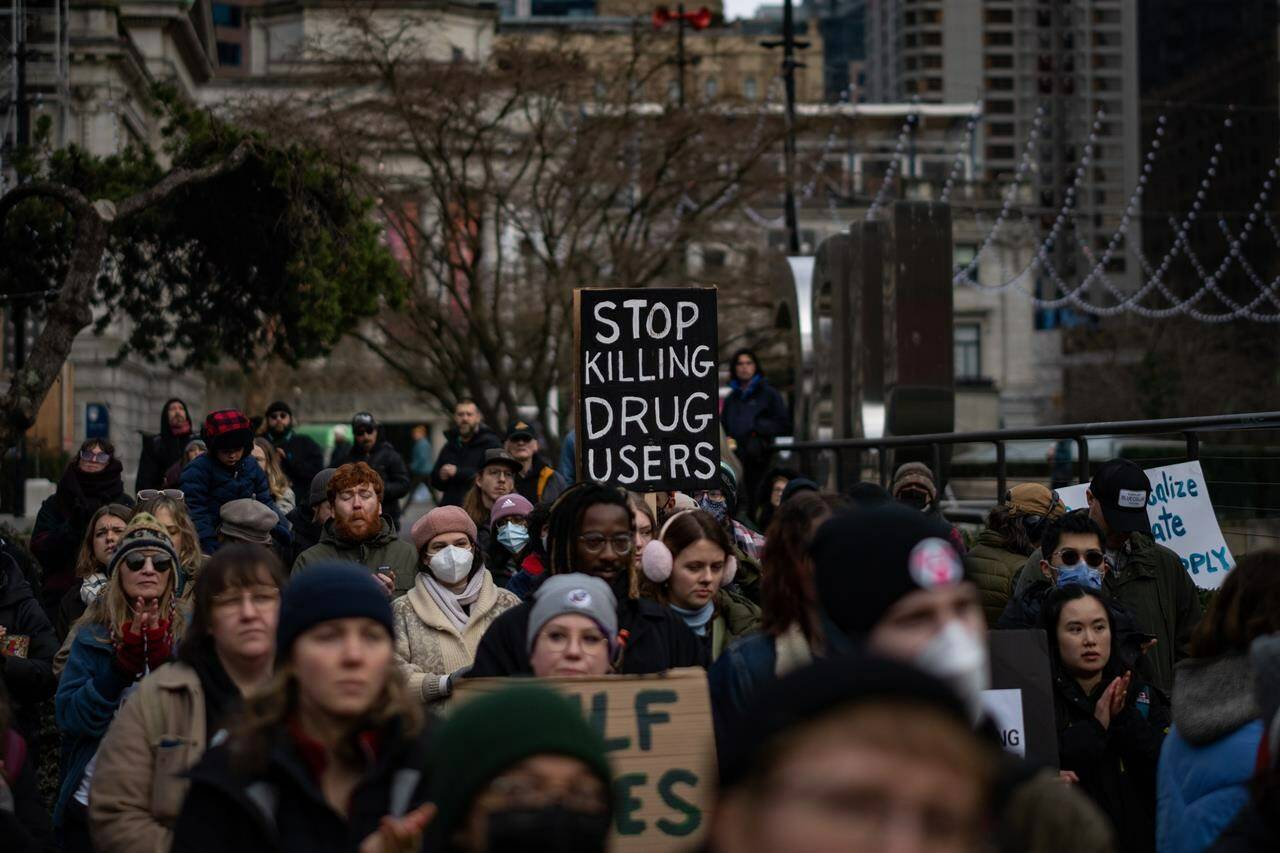Two founders of a Vancouver drug user advocacy group that distributed what they said were safe doses of heroin, cocaine, and methamphetamines to prevent overdoses have been charged with trafficking as a result of police raids last year.
Vancouver police said in a statement Friday that members of the Drug User Liberation Front had spoken publicly about trafficking the substances.
Police said charges of possession for the purposes of trafficking were approved on May 31 against 28-year-old Jeremy Kalicum and 33-year-old Eris Nyx, who are DULF’s co-founders.
The police statement said Kalicum and Nyx each faced three trafficking charges and would face court on July 2.
Police executed search warrants on DULF’s Downtown Eastside offices last October, as well as two homes linked to the investigation.
At the time, the group’s website said its “fulfilment centre” allowed drug users to receive up to 14 grams of cocaine, heroin or methamphetamine per week, with the substances tested for safety before sale “at cost.”
At an August 2023 news conference, Nyx said the group had distributed 201 doses in its first month of operation, and would continue distribution despite failing to secure a legal exemption.
The group had requested the same mechanism that allows supervised safe consumption sites to legally operate in Vancouver and for B.C. to pilot the decriminalization of small amounts of some drugs.
Neither Nyx, Kalicum, nor their lawyer immediately responded to a request for comment.
Vancouver Coastal Health’s website says the Drug User Liberation Front Society received $200,000 of public funding in 2021-2022.
Solicitor General Mike Farnworth said the contract granted to DULF was for “drug testing,” not to buy drugs, and when the government found out it had been doing so, the contract was cancelled.
Earlier this year, Nyx and Kalicum were among the authors of a research paper that looked at 47 people who used the unsanctioned compassion club.
The paper, published in the International Journal of Drug Policy, concluded participation in DULF’s program was associated with a reduction in non-fatal overdoses, as well as overdoses involving the administration of naloxone.
Hundreds of people took part in a protest calling for a safe supply of illicit drugs after the arrests of Nyx and Kalicum, arguing that DULF was saving peoples’ lives.
More than 14,500 people in British Columbia have died from drug overdoses since a public health emergency was declared eight years ago.
Last year, a panel convened by B.C.’s chief coroner Lisa Lapointe recommended the establishment of non-prescription safe supply programs to reduce deaths, but the idea was swiftly rejected by the province.
At the time of last year’s raids the VPD said it supported progressive drug policies and believed harm-reduction strategies reduced the number of people killed by toxic drugs, but organizations had to follow the law.
This report by The Canadian Press was first published July 7, 2024.
Ashley Joannou, The Canadian Press

